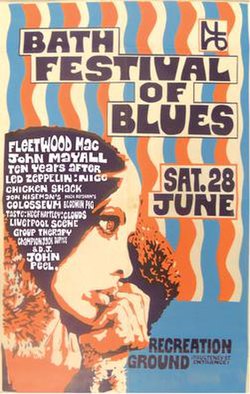
The Doors were an American rock band formed in Los Angeles in 1965, with vocalist Jim Morrison, keyboardist Ray Manzarek, guitarist Robby Krieger, and drummer John Densmore. They were among the most influential and controversial rock acts of the 1960s, primarily due to Morrison's lyrics and voice, along with his erratic stage persona and legal issues. The group is widely regarded as an important figure of the era's counterculture.

Woodstock Music and Art Fair, commonly referred to as Woodstock, was a music festival held during August 15–18, 1969, on Max Yasgur's dairy farm in Bethel, New York, 40 miles (65 km) southwest of the town of Woodstock. Billed as "an Aquarian Exposition: 3 Days of Peace & Music" and alternatively referred to as the Woodstock Rock Festival, it attracted more than 460,000 attendees. Thirty-two acts performed outdoors despite overcast and sporadic rain. It was one of the largest music festivals in history, and became synonymous with the counterculture of the 1960s.
Progressive rock is a broad genre of rock music that primarily developed in the United Kingdom, United States, and Germany through the late 1960s and early 1970s. Initially termed "progressive pop", the style was an emergence of psychedelic bands who abandoned standard pop traditions in favour of instrumentation and compositional techniques more frequently associated with jazz, folk, or classical music. Additional elements contributed to its "progressive" label: lyrics were more poetic, technology was harnessed for new sounds, music approached the condition of "art", and the studio, rather than the stage, became the focus of musical activity, which often involved creating music for listening rather than dancing.

The Moody Blues were an English rock band formed in Birmingham in May 1964. The band initially consisted of drummer Graeme Edge, guitarist/vocalist Denny Laine, keyboardist/vocalist Mike Pinder, multi-instrumentalist/vocalist Ray Thomas, and bassist/vocalist Clint Warwick. Originally part of the British beat and R&B scene of the early–mid 1960s, the band came to prominence with the UK No. 1 and US Top 10 single "Go Now" in late 1964/early 1965. Laine and Warwick left the band by the end of 1966, being replaced by guitarist/vocalist Justin Hayward and bassist/vocalist John Lodge. They embraced the psychedelic rock movement of the late 1960s, with their second album, 1967's Days of Future Passed, being a fusion of rock with classical music that established the band as pioneers in the development of art rock and progressive rock. It has been described as a "landmark" and "one of the first successful concept albums".

The Nice were an English progressive rock band active in the late 1960s. They blended rock, jazz and classical music and were keyboardist Keith Emerson's first commercially successful band.
British blues is a form of music derived from American blues that originated in the late 1950s, and reached its height of mainstream popularity in the 1960s. In Britain, blues developed a distinctive and influential style dominated by electric guitar, and made international stars of several proponents of the genre, including the Rolling Stones, the Animals, the Yardbirds, Eric Clapton, Fleetwood Mac and Led Zeppelin.

A rock festival is an open-air rock concert featuring many different performers, typically spread over two or three days and having a campsite and other amenities and forms of entertainment provided at the venue. Some festivals are singular events, while others recur annually in the same location. Occasionally, a festival will focus on a particular genre, but many attempt to bring together a diverse lineup to showcase a broad array of popular music trends.
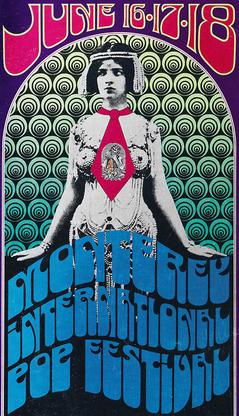
The Monterey International Pop Festival was a three-day music festival held June 16 to 18, 1967, at the Monterey County Fairgrounds in Monterey, California. The festival is remembered for the first major American appearances by the Jimi Hendrix Experience, the Who and Ravi Shankar, the first large-scale public performance of Janis Joplin and the introduction of Otis Redding to a mass American audience.

The Isle of Wight Festival 1970 was a music festival held between 26 and 31 August 1970 at Afton Down, an area on the western side of the Isle of Wight in England. It was the last of three consecutive music festivals to take place on the island between 1968 and 1970 and often acknowledged as the largest musical event of its time, with a larger attendance than Woodstock. Although estimates vary, Guinness World Records estimated 600,000 to 700,000 people attended. It was organised and promoted by local brothers, Ron and Ray Foulk through their company Fiery Creations Ltd and their brother Bill Foulk. Ron Smith was site manager and Rikki Farr acted as compere.

Ten Years After are a British blues rock group, most popular in the late 1960s and early 1970s. Between 1968 and 1973, the band had eight consecutive Top 40 albums on the UK Albums Chart. In addition, they had twelve albums enter the US Billboard 200. They are best known for tracks such as "I'm Going Home", "Hear Me Calling", "I'd Love to Change the World" and "Love Like a Man".
Spectrum are an Australian progressive rock band which formed in April 1969 and broke up in April 1973. The original line-up was Mark Kennedy on drums, Lee Neale on organ (ex-Nineteen87), Bill Putt on bass guitar, and Mike Rudd on guitar and lead vocals. In August 1970 Kennedy was replaced by Ray Arnott on drums. These members also performed under the alter ego, Indelible Murtceps, from 1971 to 1973. Spectrum had a number-one hit, "I'll Be Gone", on the Go-Set National Top 60 singles chart. After Spectrum and Indelible Murtceps disbanded, Putt and Rudd formed Ariel. In 1999 the pair formed Spectrum Plays the Blues, which later trimmed their name back to Spectrum. On 7 August 2013 Bill Putt died, after a heart attack.
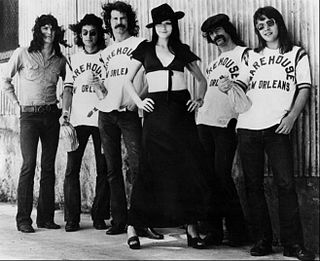
It's a Beautiful Day is an American band formed in San Francisco, California, in 1967, featuring vocalist Pattie Santos along with violinist David LaFlamme and his wife, Linda LaFlamme, on keyboards.
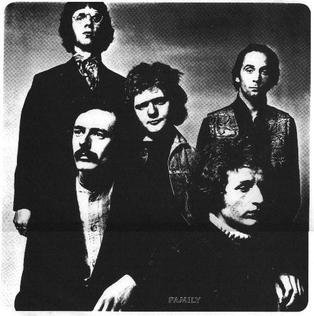
Family were an English rock band, active from late 1966 to October 1973, and again since 2013 for a series of live shows. Their style has been characterised as progressive rock, as their sound often explored other genres, incorporating elements of styles such as folk, psychedelia, acid rock, jazz fusion, and rock and roll. The band achieved recognition in the United Kingdom through their albums, club and concert tours, and appearances at festivals.

Santana is an American rock band formed in San Francisco in 1966 by Mexican-born guitarist Carlos Santana. The band has undergone various recording and performing line-ups in its history, with Santana being the only consistent member. After signing with Columbia Records, the band's appearance at the Woodstock Festival in 1969 increased their profile, and they went on to record the commercially successful and critically-acclaimed albums Santana (1969), Abraxas (1970), and Santana III (1971). These were recorded by the group's "classic" line-up, featuring Gregg Rolie, Michael Carabello, Michael Shrieve, David Brown, and José "Chepito" Areas. Hit songs of this period include "Evil Ways", "Black Magic Woman", "Oye Como Va", and the instrumental "Samba Pa Ti".

The Bath Festival of Blues and Progressive Music was a counterculture era music festival held at the Royal Bath and West Showground in Shepton Mallet, Somerset, England on 27–29 June 1970. Bands such as Pink Floyd and Led Zeppelin performed, and the festival was widely bootlegged. An 'alternative festival' was staged in an adjoining field where the Pink Fairies and Hawkwind played on the back of a flatbed truck.
Freddy Bannister, sometimes written as Freddie Bannister, was a leading British concert promoter during the 1960s and 1970s, and was the founder of the Bath Festival of Blues 1969, the Bath Festival of Blues and Progressive Music 1970 and the Knebworth festivals.

Led Zeppelin's Summer 1970 tour of Iceland, Bath and Germany was a concert tour by the English rock band. The tour commenced on 22 June and concluded on 19 July 1970.

The Newport Pop Festival, held in Costa Mesa, California, on August 3–4, 1968, was the first music concert ever to have more than 100,000 paid attendees. Its sequel, billed as Newport 69, was held in Northridge, California, on June 20–22, 1969, and had a total attendance estimated at 200,000.
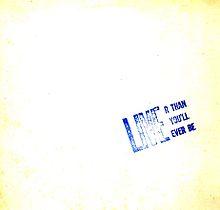
Live'r Than You'll Ever Be is a bootleg recording of the Rolling Stones' concert in Oakland, California, from 9 November 1969. It was one of the first live rock music bootlegs and was made notorious as a document of their 1969 tour of the United States. The popularity of the bootleg forced the Stones' labels Decca Records in the UK, and London Records in the US, to release the live album Get Yer Ya-Ya's Out! The Rolling Stones in Concert in 1970. Live'r is also one of the earliest commercial bootleg recordings in rock history, released in December 1969, just two months after the Beatles' Kum Back and five months after Bob Dylan's Great White Wonder. Like the two earlier records, Live'r's outer sleeve is plain white, with its name stamped on in ink.

The Tommy Tour was a concert tour by the English rock band the Who. It was in support of their fourth album, the rock opera Tommy (1969), and consisted of concerts split between North America and Europe. Following a press reception gig, the tour officially began on 9 May 1969 and ended on 20 December 1970. The set list featured the majority of the songs from Tommy, as well as originals and covers.
